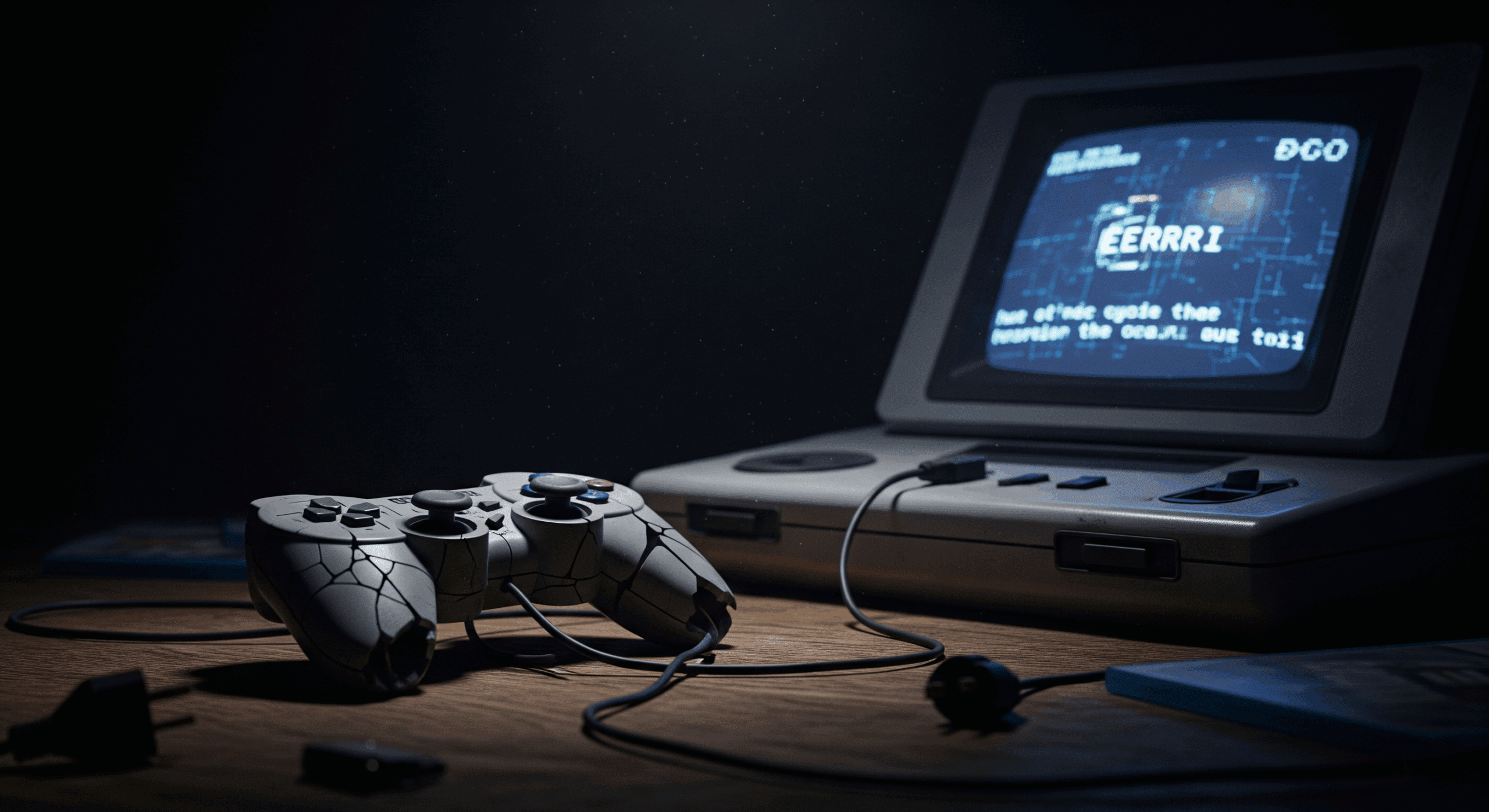
What in the World is Happening to Gaming?
Pull up a chair, because we need to have a serious chat.
There’s a strange feeling in the air lately, a persistent sense of unease that the hobby we all love is stumbling. It’s not just one thing; it’s a death by a thousand cuts. From corporate strategies that feel alien to the players they’re meant to serve, to a brutal industry contraction that is costing thousands their jobs, it feels like gaming is at a precarious crossroads.
Let’s do a deep dive into the issues plaguing the modern gaming landscape.
The Subscription Conundrum: Is Game Pass a Gilded Cage?
For years, Xbox Game Pass has been touted as the best deal in gaming, and in many ways, it is. A library of hundreds of games for a monthly fee is an undeniably great value. However, the corporate strategy behind it is becoming clearer, and it’s causing a lot of long-time fans to worry.
There’s a growing perception that Microsoft is slowly de-emphasising the Xbox console itself, pivoting to become a multi-platform publisher powered by a subscription service. We’ve seen it happen already: stellar titles like Hi-Fi Rush, Sea of Thieves, and Grounded have all launched on PlayStation 5.
While this is great for player access, it begs the question: What is the core identity of an Xbox console moving forward? If the biggest draws are no longer exclusive, the box itself becomes less essential. This shift from selling consoles to selling subscriptions is a fundamental change, turning hardware into a mere delivery vehicle for a service that feels increasingly predatory in its focus.
The End of an Era: The Console Identity Crisis
The “console wars” were always fuelled by exclusives. You bought a Nintendo for Zelda, a PlayStation for God of War, and an Xbox for Halo. These flagship titles gave each platform a unique identity and a compelling reason to earn a spot under your TV.
Today, that foundation is crumbling. As Xbox goes multi-platform, Sony is also accelerating its strategy of porting its biggest hits like Horizon Forbidden West and God of War Ragnarök to PC. While pro-consumer in one sense, this industry-wide trend erodes the very concept of console identity.
The fierce brand loyalty and excitement that defined previous generations is being replaced by a homogenous, service-based ecosystem where the hardware feels like an afterthought.
The Ubisoft Formula: A Recipe for Boredom?
This crisis of creativity isn’t confined to platform holders. Look at a publisher like Ubisoft, which has become the poster child for a particular kind of creative stagnation.
For years, gamers have pointed out the “Ubisoft formula”: a sprawling open world filled with icons, repetitive side quests, and a checklist of tasks to complete. Whether it’s Assassin’s Creed, Far Cry, or Ghost Recon, the core experience often feels eerily similar—just with a new skin slapped on it.
This approach has created games that are a “mile wide and an inch deep.” They offer dozens, sometimes hundreds, of hours of “content,” but very little of it feels meaningful or innovative.
Gamers are growing bored. The tedium of clearing a map replaces the thrill of exploration, and the result is a portfolio of games that feel safe, predictable, and ultimately, forgettable.
Meanwhile, exceptional and beloved IPs are left to gather dust in a cupboard. Fans have been crying out for a new Splinter Cell game for years—a true stealth-action title in the vein of classics like Pandora Tomorrow or Chaos Theory.
Instead of investing in that unique and proven franchise, resources are poured into the next massive open world. It’s a strategy that ignores the creativity that built the company in favour of a repeatable, low-risk template that is actively fatiguing its audience.
A Crisis of Creation: Layoffs and Lost Potential
Beyond strategic pivots, the industry is in a state of brutal contraction. In 2023 and 2024, an unprecedented wave of mass layoffs swept through the industry.
We saw huge cuts at Electronic Arts, Sony, and most notably at Microsoft, which shed nearly 2,000 jobs from its gaming division shortly after acquiring Activision Blizzard.
The damage from the chaotic implosion of the Embracer Group is still being felt, with the conglomerate shutting down historic studios like Volition (Saints Row) and Free Radical Design (TimeSplitters) after a reckless acquisition spree.
This constant instability sends a chilling message: innovation is risky, and safe bets are the new priority. Countless promising and unique games have likely been cancelled behind closed doors, lost forever to a risk-averse corporate culture.
The Human Cost: When Critical Acclaim Isn’t Enough
Nowhere is this cold reality more apparent than in the recent studio closures at Microsoft. In a move that shocked the entire industry, Microsoft shuttered Arkane Austin (creators of the beloved immersive sim Prey) and, most bafflingly, Tango Gameworks.
Let’s be clear: Tango Gameworks was the studio behind Hi-Fi Rush, a game that launched in 2023 to universal critical acclaim, won numerous awards, and was hailed as a creative triumph. It was a passion project that players adored.
For that same studio to be unceremoniously closed less than 18 months later is a gut-wrenching decision that defies all logic from a player’s perspective. It tells developers that even wild success and stellar reviews won’t save you from a spreadsheet decision.
A Failure of Trust and a Crisis of Leadership
These decisions point to a deeper problem: a growing disconnect between gamers and the executives making the calls. The disastrous launch of Redfall—a full-priced game pushed out in a broken state—was a major breach of trust from Xbox. Asking players to shell out over $100 AUD for an unfinished product, only to close the studio responsible for fixing it a year later, is simply not a good look.
This has put Xbox leadership, particularly Phil Spencer, under intense scrutiny. The goodwill earned over the years feels like it’s been squandered in favour of chasing service growth at any cost.
This is further exemplified by the persistent issues plaguing flagship franchises. The rebranding of 343 Industries to Halo Studios was meant to signal a fresh start for Halo.
Yet, reports of internal turmoil continue, largely fuelled by Microsoft’s frustrating policy of contractor term limits. This creates a revolving door of talent, making it nearly impossible to maintain a consistent creative vision and technical expertise, leading to the content droughts and instability that have frustrated Halo fans for years.
Where Do We Go From Here?
It’s a tough time. The industry feels less like a creative endeavour and more like a ruthless corporate machine obsessed with “user acquisition” and “recurrent spending.” The passion that built this industry feels like it’s being suffocated by boardroom decisions that prioritise short-term financial targets over long-term player trust and creative stability.
The future is uncertain. But one thing is for sure: the publishers and platform holders who succeed will be the ones who remember that at the end of every transaction, every subscription, and every download, there is a player who just wants a bloody good game.
Let’s hope they remember that before it’s too late.





